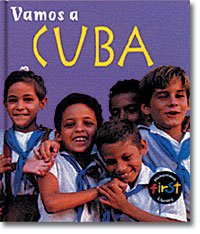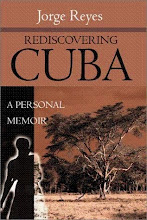Of Death, Mortality, and Fidel Castro

By Jorge Reyes
How incredibly to realize that after so long, it seems that the man we all hate to love is finally meeting his own mortality. I'm referring to Fidel Castro, someone who at least for a while seemed to have discovered the secret of life.
It only seemed that way. But even Fidel seems to be taking his own death with moderation and, like John Paul II, making the most even out of dying.
I'm amazed how some still compare present day Cuba to the man we love to hate, Fidel Castro himself, as if Cuba, the Cuban people, the very heart and soul of that small, crocodile-shaped island in the Caribbean, were synonymous with Fidel. Of course, it isn't, and disentangling both will be what most call for a future reconciliation.
It wasn't after I returned to the country of my native birth after more than twenty years of absence, that I began to think for myself-- independently of familial or personal prejudices-- of what we, Cubans the world over, have been doing wrong for fifty years or for as long as, well, what seems like Biblical times.
Simply put, there's an either/or mentality when it comes to Cuba, "a la Fidel." Hence, we are our own worst judges by advocating policies that personal, emotional and irrations because they stem from the heart. The US embargo, for example, is a failure. It always was. It always will be. Simple as that.
Yet, we've capitulated to Fidel by advocating and remaining stuck in a Cold War relic which still, to my amazement, many if not most Cubans living in exile, still seem to think is Cuba's only salvation.
I love to corrupt the minds of the youth, therefore I will go the extra mile and advocate to destroy this stupid embargo-mentality: if the US embargo against Cuba is the only rational policy that will, ultimately, depose Castro from power, howcome he's still in power? howcome his power is now even on his deathbed more entrenched than ever?
We've advocated the wrong policy.
And yet, we have Congressmen and Congresswomen in the US government who's sole ticket to fame has been their good-faith attempts to misinterpret what they, themselves, must know is a failure. Like our deepest passions, the US policy against Cuba since 1959 has been anything but rational. Rather it has shared some of the personal vitriol, one decybel too high.
I left Cuba with my parents when I was eight years old in 1982. I returned almost twenty years later as a result of my grandmother's illness, which killed her six months after a diagnosis of a rare form of cancer. Luckily, if not hastely and unprepared, my mother, an aunt and I returned to our strangely familiar land. To say much is to veer off into nostalgia. To say too little about our emotions is to be a hypocrite. Returning to Cuba was a mixbag of emotions. My experiences in Cuba eventually became a published book titled, Rediscovering Cuba: A Personal Memoir, a book which is still in print and which, as the years go by, has proven truer than I believed when I penned the small tome.
I wrote intensely. I wrote and poured my heart out. Basically, I blamed this disaster that has befallen the Cuban nation on all of us-- every single Cuban who made a choice to either leave or stay; to curse and moan against the Castro clan or capitulate and give in, instead of fight.
Since I wrote the book, I've become a bit more political, which is something I tried to stay away from when I was in the process of writing the book. But every discussion about Cuba eventually turns political.
Still, my beliefs remain non-sectarian when it comes to politics because it is my strong belief that openess, not isolation, communication, not censure, is what creates a healthy environment to live, raise families and become the person each of us is meant to be.
Book aside (and personal feelings), my journey through Cuba became part of a wonderful collection of pictures I took of local places, local people, and folkloric scenery. These wonderful images and not just the typical images of Cuba with, well, by now you know who, that Biblical Patriarch, is Cuba. Whether Communist or none of the above, whether exiled in Miami or New York City or Paris or whether living under a palm-thatched 'bohio' somewhere in an isolated town, 'this is Cuba', to paraphrase a Cuban/Russian film of the same title.
Long after He is gone, long after His face is just another failed god like Lenin or a sort of historic curiosity, a rebirth of a new Cuba will spring even if from incremental hopes and dreams, and when that day comes we'll all wonder why we didn't think of opening the windows to this beautiful paradise if but just a tiny crack at a time.....





